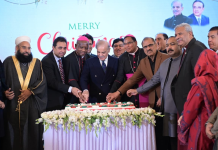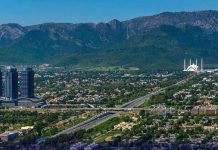DNA
LAHORE: The Chairman of the Chainstore Association of Pakistan (CAP), Mr. Tariq Mehboob, has called upon the government to take serious action to resolve issue of ever rising power tariff for commercial consumers, surging to extreme level of Rs77.15 per unit, the highest tariff of all electricity consumers in the country.
In a press release, issued here, Tariq Mehboob said that soaring electricity costs pose a major threat for retailers, traders, and exporters, severely impacting their competitiveness and affordability. This situation has also adversely affected household budgets, reducing purchasing power and making it increasingly difficult for businesses to sell products and consumers to buy them. Consequently, this has led to domestic business closures and exacerbated poverty levels. Over the past two years, Pakistan has seen a historic increase in the base electricity tariff. As a result, the base tariff for residential customers has reached Rs48.84 per unit, while the tariff for commercial customers has surged to Rs77.15 per unit, the highest tariff of all consumers. Including various taxes, these prices reach alarming levels, with electricity bills for retailers often exceeding their rent costs.
“How can a business survive in this situation?” asked Mr. Mehboob. “Commercial consumers, especially organized retailers who pay their bills on time, are burdened with the highest tariffs in the country because they are paying even higher cross-subsidies than industrial consumers, to keep tariffs artificially low for life-line consumers. Providing relief to low-income households is essential but the government must finance the subsidy for needy residential consumers from its own sources, e.g. BISP, rather than making other sectors completely unviable. One of the primary reasons for the sky-high electricity prices is substantial capacity payments to Independent Power Producers (IPPs), generating considerable concern and uncertainty. Recent report suggest that electricity consumers are set to pay capacity payments amounting to Rs 2.8 trillion during the upcoming financial year 2024-25 in total. These payments account for 70% of the electricity tariff for consumers, with the remaining 30% attributed to energy costs.”
CAP urges the government to transparently communicate the details regarding IPPs, including their role, capacity payments, and justifications, to alleviate public anxiety. Transparency in these matters is essential to build trust. All segments of Pakistani society are raising concerns about these agreements with IPPs and urging a revisit of unsustainable terms and conditions.
In another development, the Federal Board of Revenue (FBR) has recently introduced fixed monthly tax payments ranging from Rs 100 to over Rs 60,000, depending on the locality, targeting small shopkeepers and retailers across 42 major and minor cities, encompassing 25,989 identified areas. While CAP acknowledges the government’s initiative to broaden the tax base—a step crucial for national development and particularly highlighting the essential role of the retail sector—the association emphasizes the urgent need to simplify the tax system. Creating an enabling environment for the business community is vital for economic growth, leading to increased tax compliance and ensuring sustainable economic stability.
These steps will also support Prime Minister Shehbaz Sharif’s aim to boost exports to $60 billion within three years, reflecting aspirations for national self-sufficiency. However, achieving such ambitious goals requires favorable business conditions, currently hindered by increasing challenges. Until these conditions improve, reaching these targets remains a daunting prospect. CAP stresses that a supportive policy for domestic businesses and exporters, coupled with reforms in the tax system and energy sector, is essential for realizing these national objectives.












